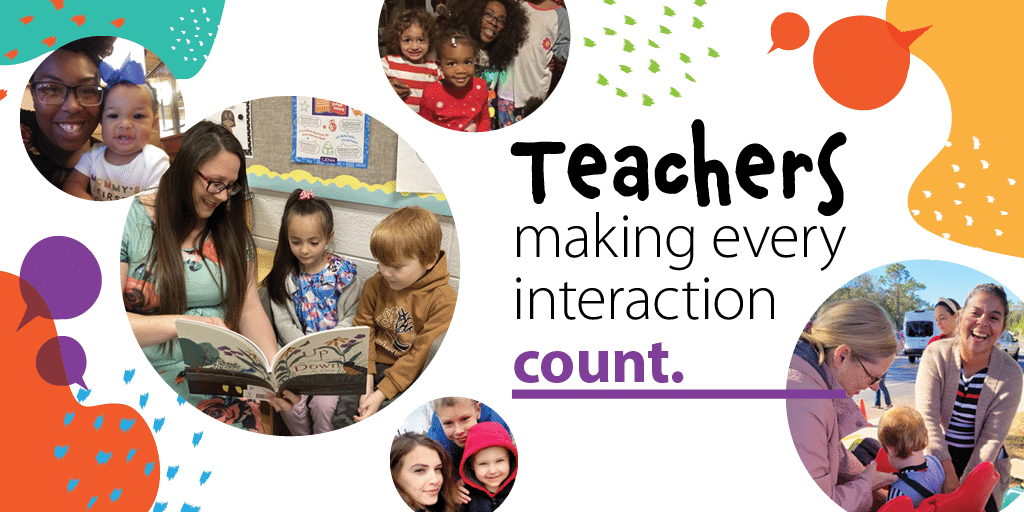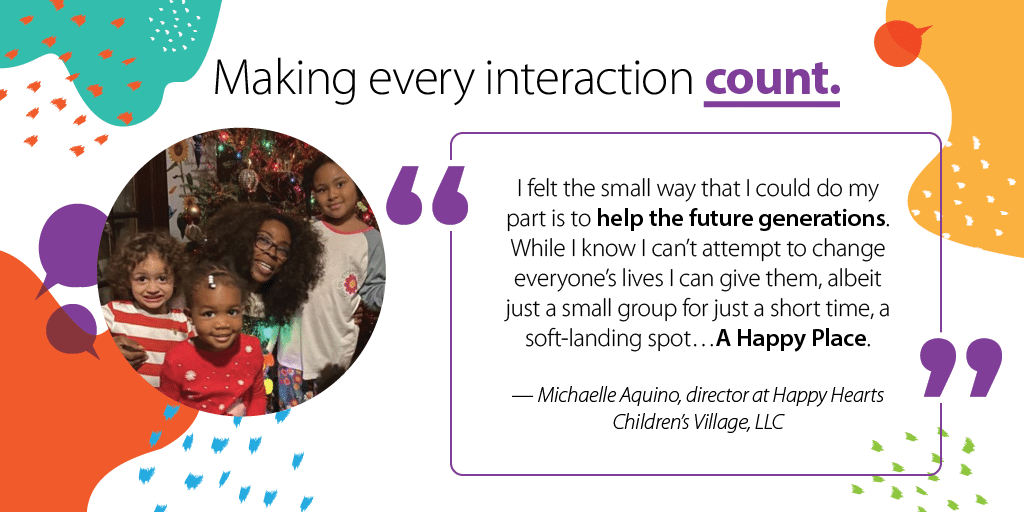There are hundreds of thousands of early childhood educators across the U.S., and millions more around the world. They’ve dedicated their professional lives to a career like no other. It’s a career that’s uniquely fulfilling, uniquely challenging, and uniquely deserving of more respect and material support.
Just as the early childhood education profession is unique, so is each teacher’s story. This week, Teacher Appreciation Week, we’re telling just a few of these stories. It’s just five educators, in their own words, describing what early childhood education means to them, as well as the modest part LENA has played in their journey. We’re honored to work with these five amazing educators, and so many more.
We talk a lot about quantitative data. What do the numbers say about the state of teacher-child interaction in early childhood education, for instance, or what do the numbers say about the kinds of language environments child care centers provide for dual language learners? None of the numbers mean anything without the dedicated professionalism of these, and all, early childhood educators.
Michaelle Aquino | Queens, New York
Michaelle Aquino spent 20 years in “corporate America” before taking the leap to early childhood education in 2019. She works as the director of Happy Hearts Children’s Village family child care in Queens, N.Y. “I felt the small way that I could do my part is to help the future generations,” she said. “While I know I can’t attempt to change everyone’s lives, I can give them, albeit just a small group for just a short time, a soft landing spot … A Happy Place.”
In the fall of 2022, Aquino participated in the LENA Grow professional development program through Queens Community House. Over the course of five weeks, she exchanged an amazing 5,733 conversational turns with the children in her care!
“LENA Grow was a game changer,” she said. “Having had the ‘LENA experience’, I have learned to be more mindful of each individual child’s development in a more precise way. I personally feel much more empowered and able when talking to parents about their children’s needs and their progress.”
Idalis Cervantes-Mavo | Hudson, Florida
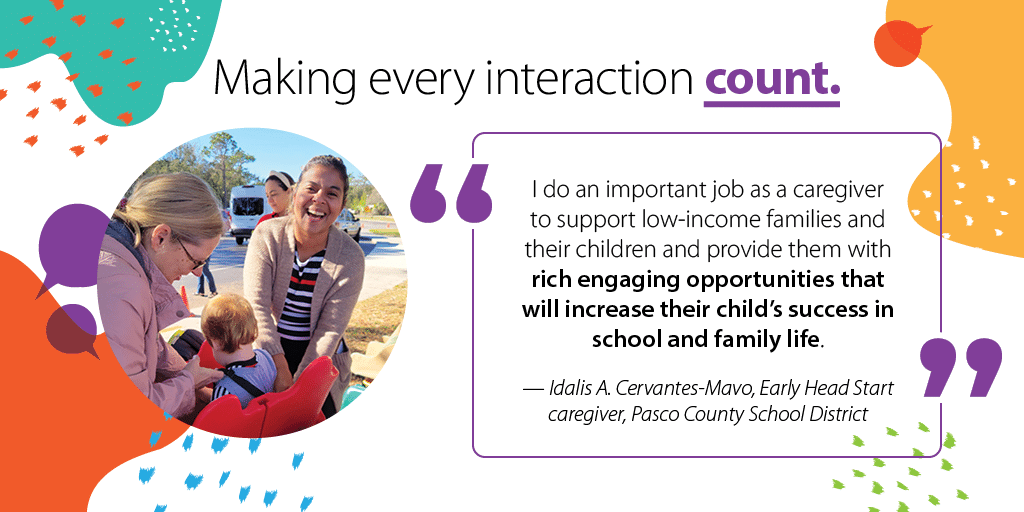
Cervantes-Mavo participated in LENA Grow in the winter of 2023. “Teaching in Venezuela was a great experience because I was able to contribute to the community and society, offering them opportunity for change, to be loved, respected, and valued,” she said. “In the U.S., it is important to highlight that we have a tool in our favor: technology. We can use it as a support resource to provide strategies to the families of our society.”
Her “aha” moment from the LENA Grow program: discovering that the 14 Talking Tips “allow the children to develop their language and communication skills naturally and spontaneously.”
Champagne Jones | Burlington, North Carolina
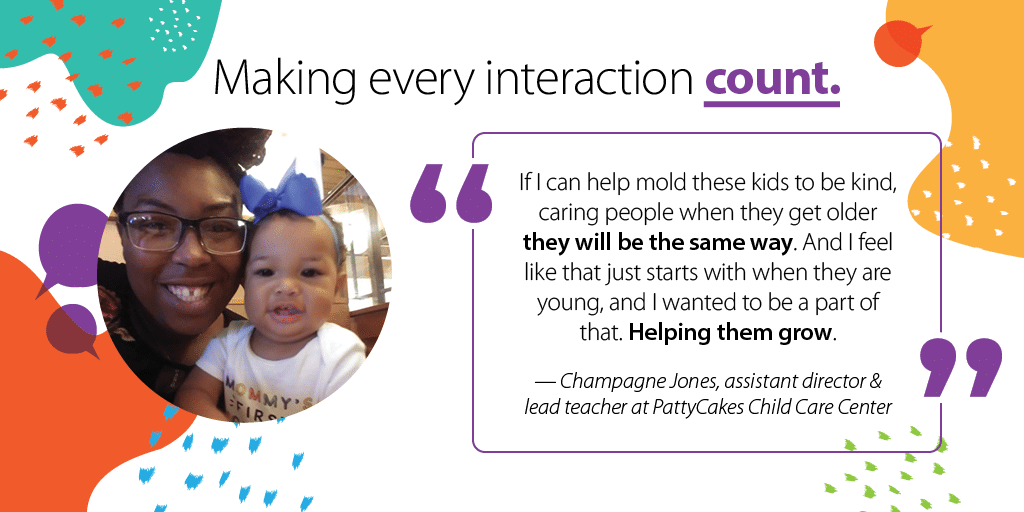
Jones participated in LENA Grow in the spring of 2021. And what’s more: Her daughter’s teachers also completed the program at a different child care center. “I saw so many changes in my daughter during the program,” she said. “I feel like I’m talking to someone older than what she is. I just love the fact that she is able to engage in a good conversation with me.”
Jones says she’s seen the same growth in the children she teaches. “It allowed the kids to express their emotions in a different way,” she said. “I was able to ask them, ‘What are you feeling’? That was something I did have a hard time with in the beginning. I think LENA pulled that out of me. I feel like they are a part of my family. And I just enjoy helping them mold into something: being strong and powerful. They might be presidents, principals, teachers, and I want them to remember me.”
Maryna Romenko | Parker, Colorado
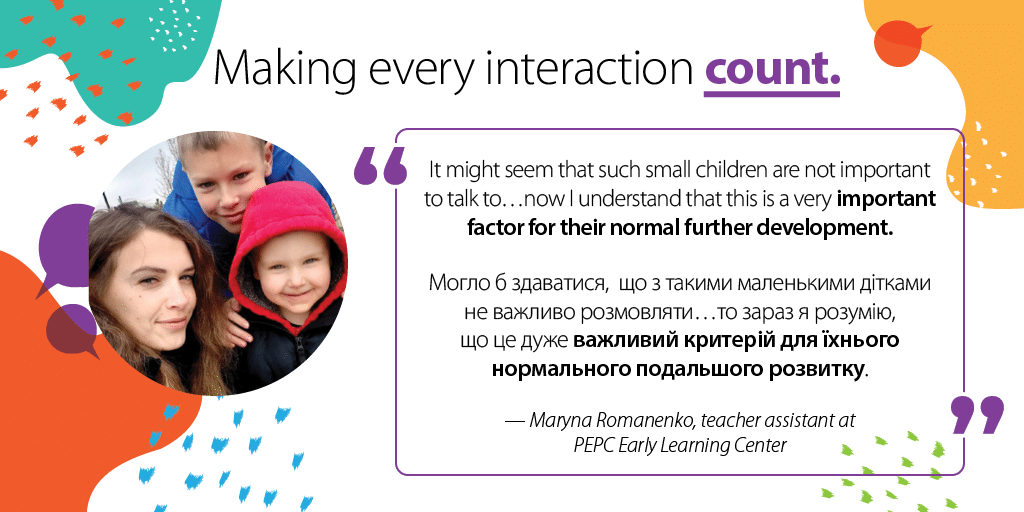
When she first started teaching, she assumed she should only speak English with the children in her care. She is grateful to her LENA Grow coach, Sarah Mayes, for encouraging her to speak Ukrainian as well. She said, “The children’s reaction is interesting to me,” she said. “When I started to say something in Ukrainian or sing a song, they stopped for a few seconds and listened. I concluded for myself that such small children already distinguish that there have been some changes in addressing them. It might seem that such small children are not important to talk to. Now I understand that this is a very important factor for their normal further development.”
Tiffany Jones | Batesville, Arkansas
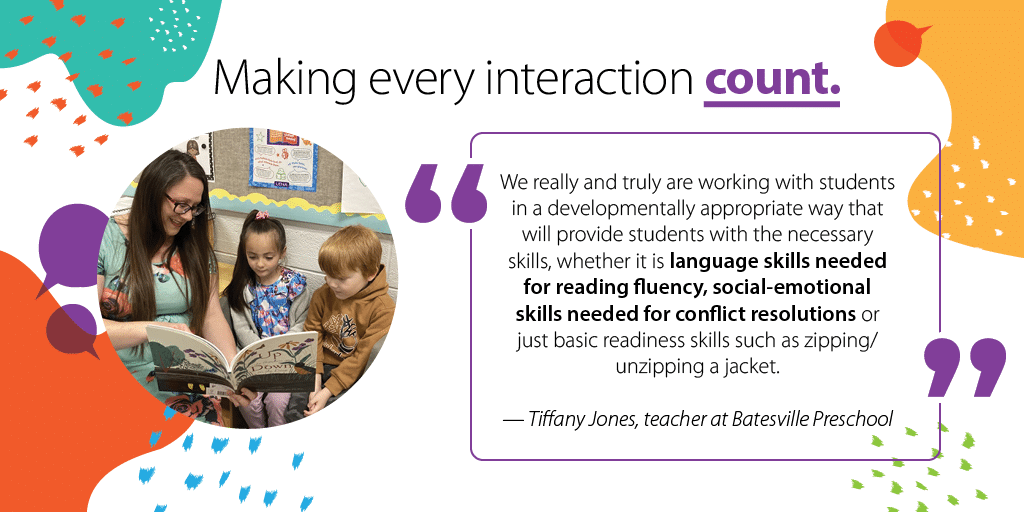
“We really and truly are working with students in a developmentally appropriate way that will provide students with the necessary skills,” she said, “whether it is language skills needed for reading fluency, social-emotional skills needed for conflict resolutions, or just basic readiness skills such as zipping/unzipping a jacket.”
Jones participated in LENA Grow in the fall of 2022. Her dedication to the program shows through, in part, in her Room Reports. Her children went from experiencing fewer than 10 conversational turns per day to more than 20 by the end of the first five weeks of the program. She was especially intentional about creating opportunities for conversational turns during outdoor play, working to balance peer-to-peer interactions with adult-child interactions.
“What a major impact we, as preschool educators, have down the road on reading and writings skills!” she said. “LENA really made an impact on my thinking process.”
